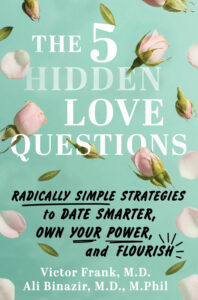A few days ago was the first day of the Gregorian calendar, January 1.
In the countries that use that calendar, the night before January 1 is a festive time. People dress up, ingest large amounts of food and alcohol with friends, and angle to lip-lock with someone at the clang of midnight. They make a big deal of it.
In the meantime, most of the world doesn’t really care. In Iran, where I grew up, the first of January is the 11th of Dey – just another winter day. In Arab countries with a lunar calendar, January 1 falls on a different date every year. It could fall on a fast day, a feast day, or a day of mourning. As it turns out, 1 January 2014 fell on the 28th of Safar, the day of the martyrdom of Hassan, one of the Prophet Muhammad’s grandsons. How’s that for a buzzkill?
The point: different people havedifferent calendars. For people who use the Chinese, Hebrew, Buddhist, Berber or Ethiopian calendar, January 1 doesn’t mean much. Here’s a short poem I wrote on this a few years ago:
It’s the new year:
The first day of some calendar
Different from all the rest
By some gridline of mind
Spinning through space and slicing
Through silent constellations who look on,
Knowing no years, months or days
Other than the eternal moment
Whenever you choose to awaken.
— © A. Binazir 1 Jan 2008
So. Is the new year a big deal to you? Do you have resolutions? Are you going to make it better?
Well, if you are, you first need to know what “better” constitutes. In other words, you need to be able to see yourself objectively. We’re going to need some clear vision. Otherwise, you’ll just be running down the wrong road.
To that end, I’d like to introduce you to a short book a friend recommended to me. Read it one sitting. It’s called Too Soon Old, Too Late Smart: Thirty Things You Need to Know Now.
The author is Dr Gordon Livingston, a psychiatrist in practice since 1967. He also served in Vietnam, almost got court-martialed as a conscientious objector, lost one son to suicide at 22 and another to leukemia at 9, and found out he was adopted at age 34.
Dr Livingston has seen a lot and lived through even more, and he conveys it in the clarity of his writing. This is a serious wallop of wisdom. Some of the things you need to know now:
- If the map doesn’t agree with the ground, the map is wrong. (This may sound familiar from another book.)
- It is difficult to remove by logic an idea not placed there by logic in the first place.
- The statute of limitations has expired on most of our childhood traumas.
- The most secure prisons are those we construct for ourselves.
- Unrequited love is painful but not romantic.
- We flee from the truth in vain.
- We are all prone to the myth of the perfect stranger.
- The only real paradises are those we have lost.
This last one is particularly powerful. I’ve mentioned before that humans are really bad at affective forecasting – predicting how they will feel in the future in response to some positive or adverse event.
Well, we’re equally bad at affective reporting – remembering accurately how we felt at some time in the past. As Dr Livingston puts it:
“Nostalgia for an idealized past is common and usually harmless. Memory, can, however, distort out attempts to come to terms with the present. When people speak wistfully of the way things used to be, it is almost always in contrast to what is happening now and reflects a kind of gloom about the future.”
The good news is that there is some time in the future when you’ll be looking back on today as one of those paradises lost. Since it’s today right now, why not enjoy paradise while it’s happening? You’re welcome. Let me go get me a fruity drink with an umbrella in it right now…
And here’s what he says about lying to ourselves:
“The most damaging lies we tell ourselves involve promises… The evanescent quality of a New Year’s resolution constitutes a cultural cliché. Good intentions are more than paving stones on the road to hell; they are distractions from the serious task of evaluating who we are and what we really want. If we spend our time imagining some ideal of beauty or self-improvement, it drains energy and distracts our attention from more serious and attainable objectives.”
So much for resolutions.
A couple of nights ago I attended a talk by Dr Jack Kornfield at Spirit Rock, who quoted J. Krishnamurti: “It is truth that liberates, not your effort to be free.” When you let go of the seeking and the rejecting, in that stillness truth has a chance to bubble up to the surface of your consciousness. And truth is our only chance at real transformation, real freedom.
So as the inaugural book of the brand-spanking new Dr Ali’s Book Club, I introduce to you Too Soon Old, Too Late Smart by Gordon Livingston, M.D. Read it, highlight it, re-read it and incorporate its teaching into your life. It will enrich your life more than any New Year’s resolution would. I recommend you get a six-pack of the paperback – you will probably want to give this to people you know.
All the best,
Dr Ali
